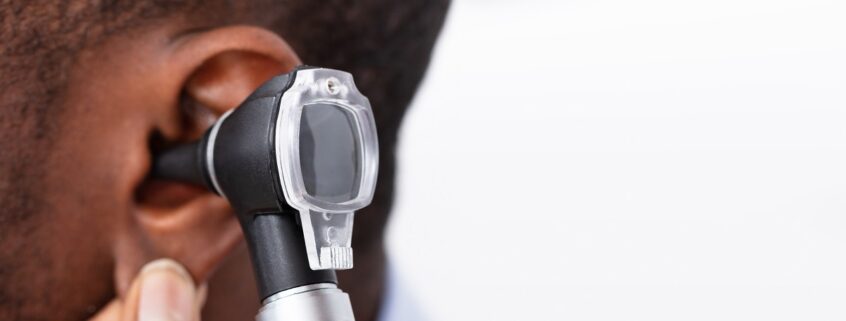4 Strange Causes of Hearing Loss

Did you know that 1 in 8 people have some degree of hearing loss? With millions of people experiencing hearing loss, you may know someone who lives with impaired hearing. One of the most common misconceptions about hearing loss is that it is caused by aging only experienced by older adults. While aging is one cause of hearing loss, there are numerous factors that can actually contribute to the development of hearing loss. A few causes of hearing loss might even surprise you:
- Earbuds: earbuds and headphones are common ways that people listen to audio. Earbuds have become everyday items used to listen to podcasts, music, or talk on the phone. You may use earbuds while commuting, at work, on an airplane, or running errands. While they make listening to audio convenient and easy, they are a common way that people are exposed to loud noise. Earbuds can deliver dangerously high levels of sound which of course does depend on the type of device the earbuds are connected to. But a good example is earbuds that are connected to an iPhone, one of the most prolific types of cell phones today. On the highest volume setting, earbuds can deliver sounds that are up to 100 decibels (dB). According to experts, sound that exceeds 85dB is considered hazardous for hearing health. So absorption of sound around 100dB poses a great risk to hearing.
This can cause noise induced hearing loss, a permanent type of hearing loss that is caused when sensory cells in the inner ear are damaged. Loud noise can desensitize and weaken sensory cells, preventing them from effectively processing soundwaves. This results in the brain receiving less auditory information, causing chronic noise induced hearing loss. Unlike other types of cells we have, sensory cells in the inner ear do not regenerate so any damage they experience is permanent.
- Head injuries: according to the Centers for Disease Control and Prevention (CDC), over 3 million head injuries occur every year! Head injuries range from mild concussions to the most severe type of head injury which is a traumatic brain injury. Head injuries involve extreme force to the head area and this can cause hearing loss in a few ways. This includes by damaging the bones that are in the middle ear, rupturing the eardrum, impairing the sensory cells in the inner ear, and/or damaging portions of the brain that are responsible for processing auditory information. These components of the auditory system – the sensory system for hearing – are critical to how sound is absorbed, processed, and understood. The most common causes of head injuries are car/bike accidents, falls, and injuries from contact sports.
- Airbags: another seemingly unusual cause of hearing loss is airbags. Airbags are inflatable cushions that are housed in the steering wheel and dashboard of a car. They provide necessary and critical protection in the event of a collision. This type of protection can be lifesaving during an accident and it can also cause side-effects including hearing loss. Airbags inflate quickly and the pressure from coming up against them can damage the auditory system. This pressure can damage the bones in the middle ear or cause a tare in the eardrum. Airbags can also produce excessive noise which can again damage the sensory cells in the inner ear. One study showed that 17% of people involved in car accidents that deployed the airbag experienced hearing loss.
- Diabetes: extensive research shows that a number of existing medical conditions can also increase the risk of developing hearing loss. This includes diabetes, a condition that affects 37 million people (11.3% of the population) in the U.S. according to the CDC. Additionally, the American Diabetes Association estimates that 1.5 million people are diagnosed with diabetes every year. Diabetes is a condition that involves higher levels of glucose in the bloodstream which can have various effects including damaging blood vessels and impacting blood flow throughout the body. This includes the inner ear where sound waves are processed and sent to the brain, and this disruption or impact can contribute to hearing loss.
These factors can all impact hearing health. To prioritize your hearing health and wellness, get your hearing evaluated regularly so you can catch it early and treat it early. You can get started today by contacting us to schedule an appointment for a hearing consultation.
